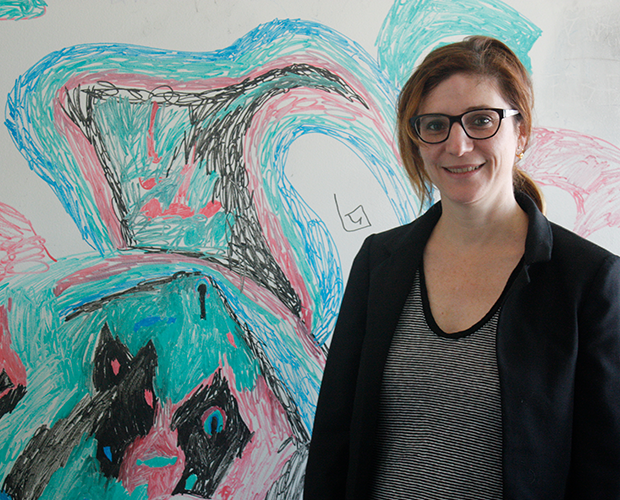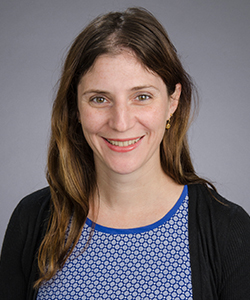Creating theoretical frameworks

GPS Associate Professor Natalia Ramondo, a leading trade expert, looks at behaviors of multinational firms and corporations in her latest working papers
Feb. 23, 2018 | By Rachel Hommel | GPS News
As an undergraduate, Natalia Ramondo remembers dreading her trade class. Now an expert in the field at the UC San Diego School of Global Policy and Strategy (GPS), she smiles at the memory.
“International trade was my most hated topic and I never wanted to work in it,” laughs Ramondo. “In the 90s, the empirical part of data was totally disconnected from theory, but nowadays it’s rare to see theories in trade that don’t have empirical content.”
With a rich background in statistics and economics, her current research utilizes a heavy theoretical framework to look at the data, going from theory to data versus data to theory.
“The thing that is powerful about theoretical research is we have prediction power,” said Ramondo. “I’m very clear about what I am looking for. I have a mechanism in my mind, it’s how I see data collection.”
Arguing for globalization, her research asks questions at the country level. Looking at relationships within a firm, Ramondo studies the effects across and within countries opening up, regarding the wealth and inequality of nations.
 As a faculty research fellow for the National Bureau of Economic Research, she will be presenting her latest paper “Trade with Correlation” at the March meeting before a conglomerate of economists. In the paper, she and coauthor Nelson Lind argue that trade gains can be very different depending on who you are trading with.
As a faculty research fellow for the National Bureau of Economic Research, she will be presenting her latest paper “Trade with Correlation” at the March meeting before a conglomerate of economists. In the paper, she and coauthor Nelson Lind argue that trade gains can be very different depending on who you are trading with.
“We already have the statistical tools to model that trade is driven by comparative advantage, we expand the toolkit to answer those kind of questions,” said Ramondo.
Working alongside longtime colleague and UC Berkeley researcher Andres Rodriguez-Clare, the joint paper “Trade, Multinational Production, and The Gains from Openness” develops the concept that the gains from globalization should be understood in a broader sense.
While past literature has only focused on trade flows like exports and imports, their paper moves to a wider and broader concept of openness to include studying the movement of multinational firms and erase immigration.
“We have switched from calling it gains from trade to gains of openness,” said Ramondo. “I believe this is my most influential paper so far, a pioneer in the literature. I am happy to be part of the movement that put trade on the lead of economic research.”
Ramondo stresses the importance of the life cycle dynamics of multinational firms, particularly how they expand and how countries can attract them, due to their economic benefit. Linking the idea of innovation to multinationals, her research looks at what will attract these firms and which countries are best suited for innovation versus production.
“Multinationals in the economy are the best firms – they are the largest, most productive and most innovative,” said Ramondo. “They are truly the superstars, everyone wants them in their economy.”
However, the paper throws a shadow of caution: certain countries may lose from hosting foreign firms since they can replace their local innovators.
In the classroom, Ramondo helps students explore this idea of innovation and production in her International Economics course. Looking at the art of research, empirical evidence and methods are at the foundation of each class.
“I want students to not just copy and paste, but make their own assessments. Look at data and put together their own evidence to make a point,” said Ramondo.
Eager to share her research with GPS students, Ramondo plans to write a textbook on multinational firms in the near future, utilizing working papers in the classroom to inspire further discussion.
“I really like teaching master’s students. It helps me think about my own research and gives me new ideas,” said Ramondo.

